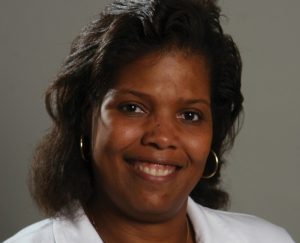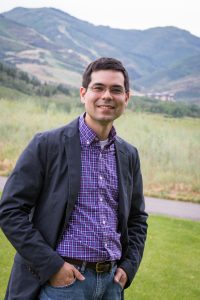Distinguished Lecture Series
Graduate Lunch Lecture
Professor Oscar Vazquez Mena, Ph.D
Professor Oscar Vazquez Mena obtained his B.S. in physics engineering from the Monterrey Institute of Technology in 2000 in Mexico, and his M.S. degree in nanoscale science and engineering from Chalmers University of Technology in Sweden, realizing his thesis at Delft University of Technology. He received his Ph.D. in 2010 from the Swiss Federal Institute of Technology of Lausanne (EPFL) in Switzerland. He did postdoctoral research stages at the University of California, Berkeley in the Department of Physics from 2011 to 2014, and at the Institute of Photonic Sciences in Barcelona in 2015 with a Marie Sklodowska-Curie fellowship. At UC Berkeley, he founded the Indigenous Pipeline to support the educational development of children from indigenous communities in Mexico living in the Bay Area
Honorary Lecture
Window to the Brain: What should be looking for, literally and metaphorically?
Professor Guillermo Aguilar, Ph.D
Prof. Guillermo Aguilar received his B.S. in Mechanical and Electrical Engineering from the National Autonomous University of Mexico (UNAM) in 1993. He earned his M.S. and Ph.D. also in Mechanical Engineering at the University of California Santa Barbara (UCSB) in 1995 and 1999, respectively. In 1999, he received a Whitaker Postdoctoral Fellowship to join the Beckman Laser Institute and the Department of Chemical and Biochemical Engineering and Material Sciences (CBEMS) at the University of California Irvine (UCI). In 2001 he was appointed as an Assistant Adjunct Professor at the then Center for Biomedical Engineering at UCI.
Since 2003 Prof. Aguilar joined the Department of Mechanical Engineering at University of California Riverside (UCR), where he was promoted to Associate Professor in 2007, Full Professor in 2012 and since 2013 serves as the Department Chair. Prof. Aguilar has co-authored more than 80 journal publications, advised more than 12 postdocs, 50 students, including 25 graduate students (MS and PhD) and several undergraduate students and interns. He served as the Graduate Advisor and Chair of the Graduate Committee since 2005, Chair of Search Committee in 2011 and member of various other committees within the Department, College and UCR Campus.
Prof. Aguilar has received research funding from various sources, including NSF, ASLMS, AFOSR, DARPA, Sandia National Labs, NIH, etc. He is co-founder of Advanced Bio-Ceramics (ABC), LLC. His current research interests include laser-tissue interactions, biomedical optics and development of novel bio-ceramic materials.
Educator of the Year Award
Advances in Catalysis for Air Quality Engineering

Professor Jean Andino
Colleagues and students cite Dr. Jean Andino as an exemplar of the goals of the SHPE Educator of the Year award. Her efforts to educate, inspire and promote Hispanic learners are broad, deep and impactful. A tenured faculty member in the Chemical Engineering and Civil, Environmental and Sustainable Engineering programs at Arizona State University, Andino’s research focuses on chemical kinetics and mechanisms as applied to air quality and energy hemes. She has obtained more than $17 million in external funding and holds a patent for a new technology for carbon dioxide control. She is a Barrett Honors Faculty and Senior Sustainability Scholar, and one of only 15 U.S.-born Latinas in engineering faculty positions in the country. Andino serves as co-director of the Western Alliance for Expanding Student Opportunities (WAESO) Louis Stokes Alliance for Minority Participation. The program is funded by a multi-million-dollar grant Photo to come from the National Science Foundation to expand opportunities for under-represented undergraduate students to engage in meaningful research and continue to graduate school. She served as leader of the Graduate Institute Committee for the SHPE national conference in 2016 and secured sponsorship from her institution. “Professor Andino is innovative in her classroom teaching, and supportive of students to the successful conclusion of their research and movement into graduate programs,” says Antonio Garcia, Ph.D., co-director of WAESO and ASU Foundation Professor of Bioengineering. “She has inspired students through her captivating personal story, her leadership abilities, and the significance of her elite status as an excellent Latina role model.” Andino earned her B.S. in engineering sciences and her Ph.D. in chemical engineering from the California Institute of Technology. She was a professor in the Environmental Engineering Sciences department at the University of Florida before joining ASU. She received a Fulbright U.S. Scholar award in renewable energy to work with faculty and researchers at the Universidad Tecnológica de Panama. She also has been honored with the NSF CAREER Award.
Young Investigator Award
High-Speed Acoustic Bridge Deck Scanning: A journey

Professor Brian Mazzeo
Through his research into non-destructive testing of concrete bridge decks, Brian Mazzeo, an associate professor in electrical and computer engineering at Brigham Young University, is helping to make bridges safer while decreasing the costs and lasting impacts of testing. Indeed, the traffic control and road closure costs of bridge testing are often more costly than the inspection itself. In the course of his work, Mazzeo has experimented with acoustic methods, sonar methods, water droplets, paintballs, airsoft pellets, and even ice in an attempt to excite defects quickly and repeatedly enough for deployment at high speeds. In the past year, however, studying how metallic objects rebound from impacts on concrete surfaces, Mazzeo discovered that tire chains could be used to scan bridge decks and interpret acoustic signals associated with defects in concrete. He demonstrated the technology in the field by scanning 22 bridge decks in three hours, demonstrating both the utility and the order of magnitude improvement over other methods. He received the 2017 American Society for Nondestructive Testing Fellowship Award for his work. “No other research team has ever performed impact-echo testing without any stationary traffic control equipment at all,” says W. Spencer Guthrie, Ph.D., professor in the Department of Civil and Environmental Engineering and Director of the Highway Materials Laboratory at BYU. “I believe this new method will change the state of the practice, leading to the obsolescence of chain-drag surveys within a short time.” Mazzeo also conducts research assessing the electrical and ionic properties of lithium-ion battery films. Over the course of his relatively short research career, Mazzeo has amassed nine U.S. patents, with more pending; 64 conference presentations; and 26 archival journal articles. A Life Member of SHPE, he serves as an advisor to the SHPE chapter at Brigham Young University and has served on the SHPE Faculty Development Institute Organizing Committee. He maintained a perfect GPA while pursuing his undergraduate career at the Massachusetts Institute of Technology. As a Marshall Scholar, Mazzeo earned Ph.D. in engineering from King’s College, University of Cambridge in the United Kingdom.